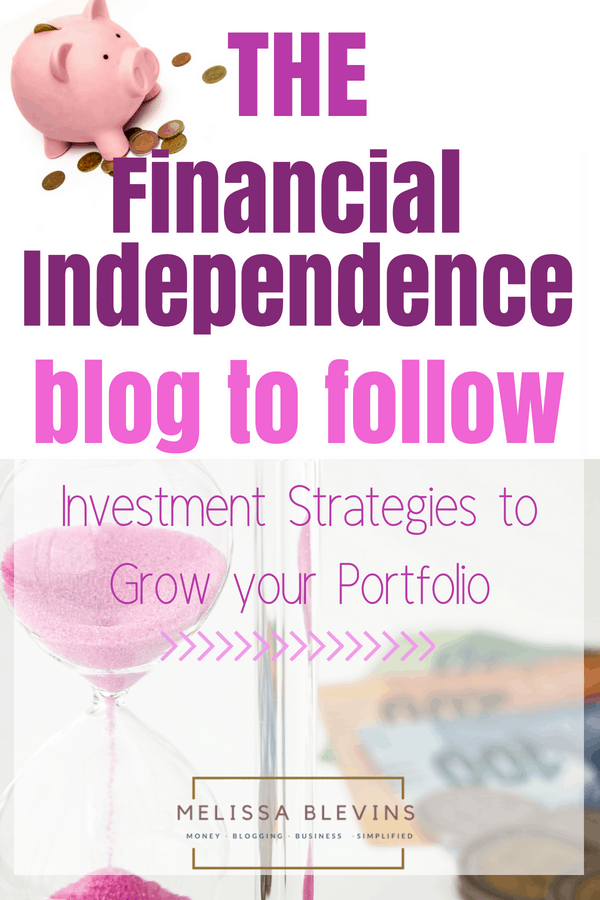This post may contain affiliate links. Click here to read my full disclosure.
Humbug and his trading partner Fagin are engaged in a blood, sweat, toil and tears (well maybe not tears, but certainly tantrums) public, real life, real money competition called The Great British Trade Off. They share their stories on their financial independence blog. Humbug is the long term investor, Fagin the short term trader, the idea being to see over a five year time line which is the safer and better way of generating wealth from the markets. Is it trading or is it investing?
Humbug is an experienced private investor who’s spent the last twenty years honing his craft. He’s a regular contributor to the on-line investment magazine diyinvestor and updates his activities every few days on his own site www.seekingfinancialindependence.com and on Twitter at Humbug&Fagin@BritishTradeOff
In this guest posting he talks about the opportunity the stock market provides to generate wealth and create financial independence and how a newbie might start to put money into the markets. He also gives us an insight into how he picks his own investments.

First of all I want to thank Melissa very much for inviting me to do this guest post on her site to talk about beginning to put money into the stock market. Hello I’m Humbug, a private investor based in the UK. I’m engaged in a public competition over here to see whether over a five year period, long term investing or short term trading is the best way to generate the capital gains that create wealth and financial independence. I think its investing, the results may not be as dramatic, but it’s easier to fit in with a busy life, less stressful and I believe safer.
There’s a widely held view that the stock market is a dangerous place and one step removed from playing roulette in Las Vegas. I agree, it certainly can be a dark and dangerous place.
But and it’s a big BUT, it doesn’t have to be. Done sensibly stock market investing is a brilliant way to generate wealth by hitching a ride on the most powerful force on earth, no not the US military, but compound interest.
Investing in the markets is a very big subject and in this posting I’m only going to be able to scratch the surface. Melissa and I have talked about my maybe doing a series of more detailed articles, at a later date if you find my thoughts helpful to you.
My advice to someone just starting out is don’t even dream about getting into short term trading be a long term investor. The problem with trading for a newbie is that you’ll be head to head with some of the finest brains in the world and some of the cleverest machines, they know what they’re doing, you don’t, you won’t win, so why try.
With long term investing however you benefit from the gentle rise that naturally happens as a result of economic growth, the dividends that come from company profits and the compounding effect of those gains and that income. Sure things don’t always go up in a straight line and from time to time markets crash. But they do go up over time and the longer your timeline the greater your gain is likely to be.
The trick is to approach it all with the right mindset. If you go in thinking you’ll double your money in a year, your more likely to halve it in a week. Be calm and make haste slowly.
Side note: Most of my audience is from the US. Humbug shares his figures in British pounds. At the time of publishing this article, 1 British Pound equals 1.34 US dollars.
People should clear all their debt (with the possible exception of the mortgage on their house) before they think about investing, because the interest charged on debt tends to be higher than the returns gained from investing. There’s no point in having £15,000.00 debt on a credit card with interest being charged at 16.4% and £15,000.00 in the market earning 7%. By the end of the year you’ll be £1410 down on the deal, so what’s the point of that? Clear the card, then invest.
However when someone is debt free and say has £15k invested that earns 7% then they have £16,050 at the end of year one. If they invest another £15k the next year and get the same 7% return by the end of that year they have £33,233. Continue doing this for five years and they have £92,597, do it for 10 years and they have £222,168.00. At the end of 15 years the money has almost doubled to £423,185.00 and by the end of 20 years in spite of only putting in £300k compound interest has created a fund worth £685,834.00.
This a fairly simple example and sure I get the point that saving £15k a year to invest is easier said than done but bearing in mind how much money the average person wastes on ‘stupid’ spending every year, it can be done.
I believe I’m right in saying the average car (auto) loan in the US is $30k and the average Household income is $60k. See what I mean, not all folks spend their money wisely. Those that do and start early enough in life end up rich because of compound interest even with relatively small sums involved.
The old gag is, if you don’t know what compound interest is your likely paying it, if you do your likely earning it.
A couple of side issues, there is a brilliant book called The Millionaire Next Door by Thomas J. Stanley and William D. Danko its well worth getting a copy, you’d be amazed how frugal the average US millionaire is and Melissa has a brilliant video on You Tube about what to do if you have ‘an upside down car’.
Here’s my affiliate link to The Millionaire Next Door. For my full disclosure, read here. Thank you for supporting the blog!
I remember how daunted I was when I first entered the markets and the countless mistakes I made. Looking back I wish someone had given me the following general pieces of advice.
7 Investment Strategies from a Financial Independence Blog
1. Open two accounts with low cost investing platforms/brokers.
2. Use tax advantaged accounts.
3. Buy a charting and administrative software package. I use a programme called Sharescope (as a quick side issue I neither receive nor wish to receive any commission from talking about them) this brilliant programme tells me everything I could ever wish to know about the market and lets me keep financial track of my portfolio.
4. At first only invest very small amounts and make sure the sums are money you can ‘afford’ to lose.
5. Don’t take any notice of what anybody, with the possible exception of Warren Buffet, says you should or shouldn’t buy. There are so many talking heads out there in the media, often with a hidden agenda, mainly talking rubbish, ignore.
6. Think about where you think economic growth is likely to come from in the future and invest in mutual funds that cover those areas. Use your charting programme to confirm that the sectors you’ve chosen have had good steady price momentum in the recent short term then pick the best performing, lowest cost, mutual funds in (say) half a dozen different sectors and put your money there.
7. I would aim to check your portfolio once a week , always on the same day so you can keep a close eye on which sectors of the market are doing well and which aren’t and without trading too often make sure you’re the right side of the action more often than not. The glib way to express it would be to say ‘buy the winners, sell the losers’. Easy to say, not so easy to do, but it’s what you should aim for.
Don’t waste your money going to trading seminars, not even ‘free’ trading seminars.
If the guy standing at the front of the room, in some second rate hotel trying to sell you his miracle investing system was so clever, he wouldn’t be standing there would he? So why do you want to give him your money? But do read books, a great one to start with is Reminiscences of a Stock Operator by Edwin Lefevre (it’s a thinly disguised biography of the famous trader and investor Jesse Livermore) and above all practise. Experiment with tiny amounts of money and find a way of investing that suits your personality and attitude to risk.
Finally, accept that you will make mistakes, its part of the price you pay for learning, after all education has a price. However markets pay dividends and go up over time, so whilst you’ll have good and bad years over time if you educate yourself to be even half good at investing you’ll make money.
That basically is how I invest my own money and I too sometimes have bad years, either because I’ve made stupid mistakes (yes, I still get it wrong even after all these years) and sometimes because the market just isn’t kind to me. But on balance I have more good years than bad.
Last year in The Great British Trade Off I had a dreadful year losing 7.5% of my capital, this year by contrast things are going really well. It’s just the nature of the game. When its going well I try not to think I’m a mini master of the universe and when its going badly I try not to self harm.
I’m a great believer in keeping things simple in my own investing life, after all why make things complicated if you don’t have to. All I do is look in detail at all the various mutual fund sectors each week looking to try to hitch a ride on any new up trend that has made a strong start and conversely looking to see when a trend in a fund I’m already invested in looks to be weakening and I need to exit.
Know When to Cut Your Losses
I’m ruthless at cutting loss’s if a trade doesn’t work out, I believe that taking any number of quick small loss’s and moving on without looking back is preferable to suffering large loss’s. Not least because it frees up capital to be used (hopefully) more profitably elsewhere.
I use long and short term moving averages to time my entry and exit points and finally free lunches are hard to come by, but usually good. The only ‘free lunch’ in investing is diversification. I want to have my assets spread far and wide for safety, so I never put more than 10% of my capital into any individual fund and never more than 15% in any one sector.
Every week on www.seekingfinancialindependence.com I report on what investments and trades I’ve done, if your interested in following the journey of a private investor, it would be a pleasure having you along for the ride.
But finally, please do not copy my trades or investments, always make your own decisions about where to place your money and always do your own research.
I wish you well, good luck with all you do.
Thanks so much to Humbug for taking the time to guest post on the blog this week! I thoroughly enjoyed reading about his strategies and look forward to following the chronicles of Humbug and Fagin! If you enjoyed, please be sure to follow them on Twitter and their financial independence blog to keep up with their shenanigans!

Life is a collection of memories and experiences. There are ups and downs. I am so grateful for God’s grace and am on the journey to a renewed spirit, free of perfectionism. Perfection Hangover offers the sober truth – no filter.


